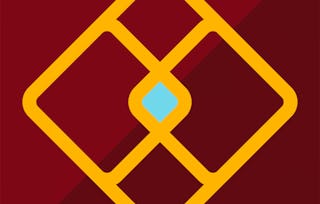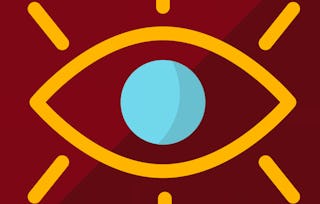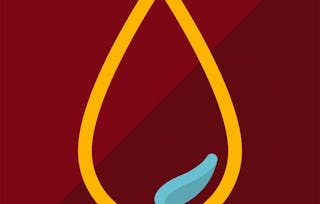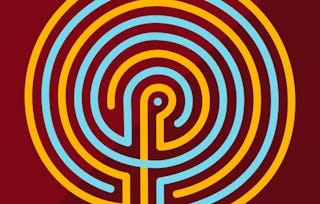There is strong demand for alternatives to pharmaceuticals for a variety of common illnesses due to concerns of safety, efficacy, and a desire for more “natural” products. Despite this growing interest, “conventional” healthcare providers may have little to no knowledge about herbal medicines, which is further compounded by the sometimes misleading information in the media and on the internet. This course provides the necessary background for providers to begin to incorporate herbal medicines into their practice, particularly in regards to their therapeutic properties, efficacy (or lack thereof), and safety concerns, including quality control and potential adverse effects.

Herbal Medicine

Herbal Medicine
This course is part of Integrative Health and Medicine Specialization

Instructor: Amy Taylor, MD
43,764 already enrolled
Included with
852 reviews
Recommended experience
What you'll learn
Discuss the role of herbal medicines in healthcare overall as well as your potential role.
Discuss overall botanical actions and methods for creating botanical preparations.
Assess patients, including potential for herb-drug interactions and other potential contraindications and considerations for special populations.
Educate patients on quality control and safety issues.
Skills you'll gain
- Patient Safety
- Nurse Education
- Pharmaceuticals
- Pain Management
- Patient Communication
- Gynecology
- Contraindication
- Patient Education And Counseling
- Drug Interaction
- Respiratory Care
- Medication Therapy Management
- Medical Science and Research
- General Science and Research
- Healthcare Industry Knowledge
- Pharmacology
- Health And Safety Standards
- Pharmacotherapy
- Chronic Diseases
- Health Care Procedure and Regulation
- Patient Evaluation
Details to know

Add to your LinkedIn profile
See how employees at top companies are mastering in-demand skills

Build your subject-matter expertise
- Learn new concepts from industry experts
- Gain a foundational understanding of a subject or tool
- Develop job-relevant skills with hands-on projects
- Earn a shareable career certificate

There are 7 modules in this course
This module covers essential knowledge that ensures you are starting with a clear understanding of what herbal medicine is, how it is regulated, and why botanical medicine can be challenging to research. This will set you up for success as you move forward in the course and apply it to your professional life.
What's included
11 videos5 readings1 assignment2 discussion prompts
Now that you’ve gotten an overview of the field of herbal medicine, we’ll identify some important cautions to keep in mind when using botanicals, including contaminants, herb-drug interactions, product quality measures, and safety guidelines. By the end of this week you’ll be equipped with the skills you need to identify quality products and assess if a patient is a good candidate for botanicals.
What's included
5 videos6 readings4 assignments1 discussion prompt
In this module we’ll be taking a deeper look at how botanical medicines work. What is an adaptogen? When should you recommend a carminative? How do you make a botanical preparation? You’ll also have the chance to discuss with your peers about the potential impact on healthcare systems if more patients knew how to make botanical preparations.
What's included
9 videos3 readings2 assignments1 discussion prompt
In this module we’ll discuss botanicals that can help manage symptoms related to mental health, women’s health, and musculoskeletal pain. You’ll get some handy reference sheets that you can use for quick access to information on uses and precautions, and we’ll identify the level of evidence for each botanical in the research guides.
What's included
7 videos12 readings2 assignments1 discussion prompt
In this module we’ll explore botanicals that can be used for upper respiratory and skin conditions. You will also continue to learn how to assess, educate, and advise patients on botanicals from a real-life scenario.
What's included
3 videos7 readings1 assignment
What's included
1 video1 reading1 peer review
In this module we will discuss botanicals that can help manage symptoms related to GERD, GI and liver disorders, and UTIs.
What's included
5 videos9 readings2 assignments1 discussion prompt
Earn a career certificate
Add this credential to your LinkedIn profile, resume, or CV. Share it on social media and in your performance review.
Instructor

Offered by
Explore more from Patient Care

University of Minnesota

University of Minnesota

University of Minnesota

University of Minnesota
Why people choose Coursera for their career

Felipe M.

Jennifer J.

Larry W.

Chaitanya A.
Learner reviews
- 5 stars
89.20%
- 4 stars
9.85%
- 3 stars
0.70%
- 2 stars
0.23%
- 1 star
0%
Showing 3 of 852
Reviewed on Jun 30, 2023
This course gives a wealth of information about herbs and their uses in herbal medicine. I have taken many online courses and this one ranks at the top for quality and usefulness.
Reviewed on Mar 31, 2019
Very good course and it suits for everyone who likes herbal medicine.The instructor and a presentation doing very well for a course.I really like it and will keep going on for my botanical approach.
Reviewed on Jun 26, 2019
A good introduction to herbal medicine. Not very useful for a more experienced learner like myself, but I did enjoy the resource reference sheets for different herbs.

Open new doors with Coursera Plus
Unlimited access to 10,000+ world-class courses, hands-on projects, and job-ready certificate programs - all included in your subscription
Advance your career with an online degree
Earn a degree from world-class universities - 100% online
Join over 3,400 global companies that choose Coursera for Business
Upskill your employees to excel in the digital economy
Frequently asked questions
This course has been designed to meet Minnesota Board of Nursing continuing education (CE) requirements for 15 contact hours and may be eligible for CE credit from other professional boards that allow self-documenting of continuing education activities. It is your responsibility to check with your regulatory board to confirm this course meets your local requirements and, if necessary, to provide them with the certificate of completion you get if you pay for and fulfill all the requirements of this course.
To access the course materials, assignments and to earn a Certificate, you will need to purchase the Certificate experience when you enroll in a course. You can try a Free Trial instead, or apply for Financial Aid. The course may offer 'Full Course, No Certificate' instead. This option lets you see all course materials, submit required assessments, and get a final grade. This also means that you will not be able to purchase a Certificate experience.
When you enroll in the course, you get access to all of the courses in the Specialization, and you earn a certificate when you complete the work. Your electronic Certificate will be added to your Accomplishments page - from there, you can print your Certificate or add it to your LinkedIn profile.
More questions
Financial aid available,
¹ Some assignments in this course are AI-graded. For these assignments, your data will be used in accordance with Coursera's Privacy Notice.

